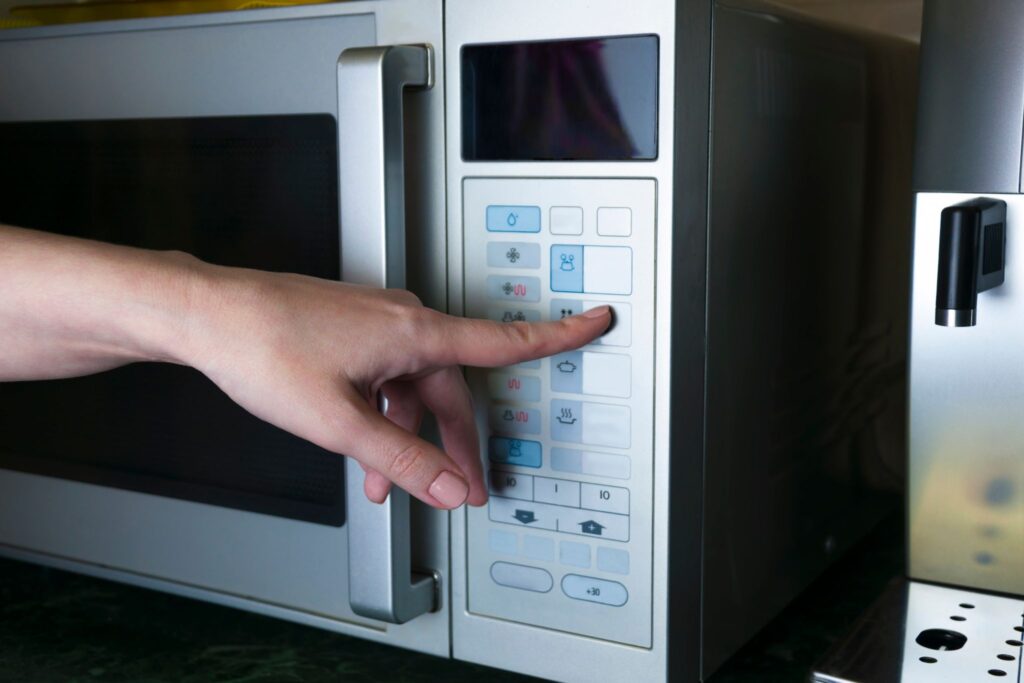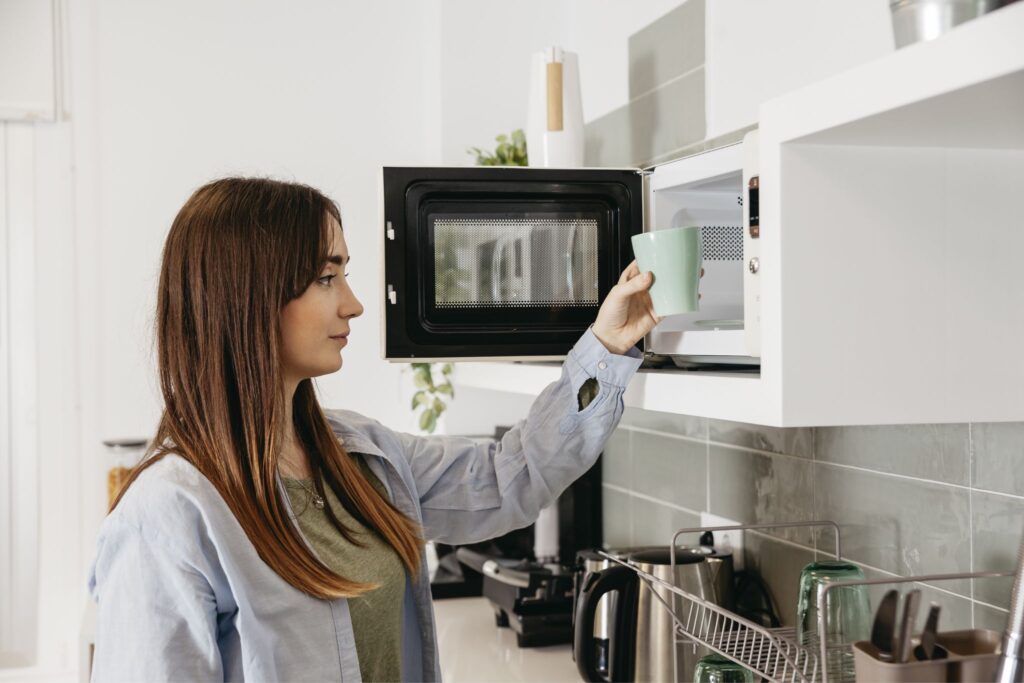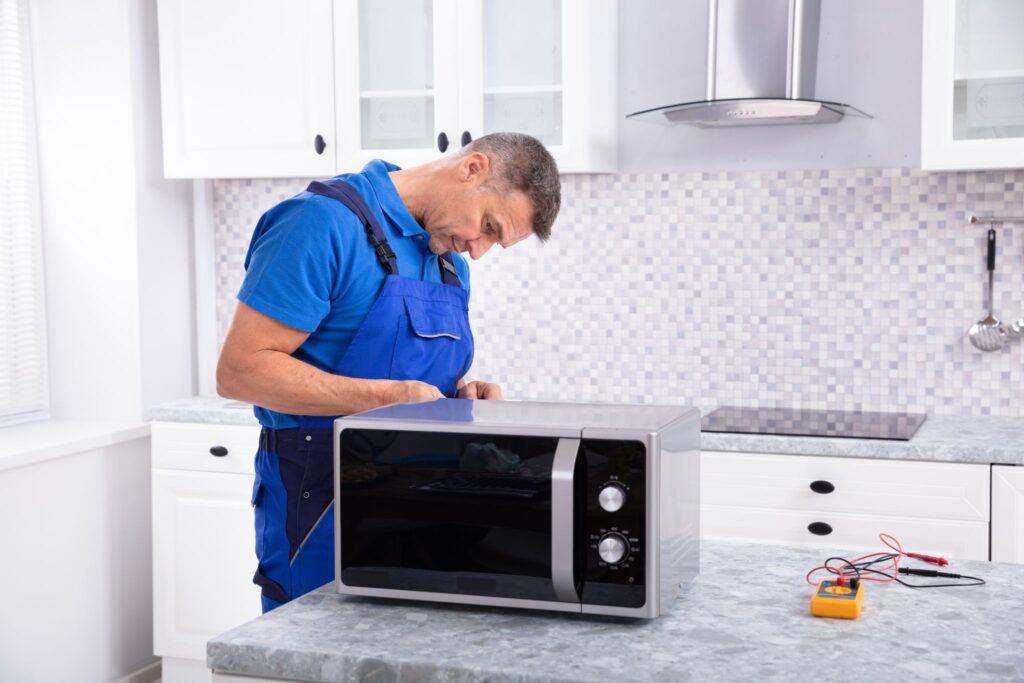Originally Created on: May 2, 2023 @ 10:39 am
Can you boil water in a microwave? We all know that microwaves are great for reheating food and cooking up a quick meal or snack. But can a microwave also help you get hot and ready in a hurry?
The answer is a resounding… maybe. There are definitely some pros and cons to boiling water in your microwave, so it’s important to know what you’re getting into before diving in.
Keep reading to learn more about boiling water in the microwave—and whether or not it really is a viable option for you.
We’ll explore the safety concerns, provide tips for success, and even give you some alternatives if boiling water in the microwave isn’t your cup of tea.
Ready to find out if microwaving water is really worth the trouble? Let’s get hot and ready with this discussion!
You May Also Like: How Hot Do Microwaves Get [+ 3 AMAZING Tips]
Table of Content
Can You Boil Water In a Microwave?
Let’s start with the basics: the answer to this seemingly simple question is yes. You can indeed boil water in a microwave. In fact, it’s one of the most common applications for a microwave.
The best way to do it is by using a microwave-safe container to hold the water and adding in some salt or sugar. This will help heat up the water faster and create a rolling boil, which helps to ensure that all bacteria are destroyed.
You can then monitor the boiling process as desired, removing your container once you’ve achieved your desired temperature.
But boiling water isn’t the only thing you can do in your microwave. From powering up leftovers to rehydrating dried ingredients, microwaves are incredibly versatile tools that have much more than just boiling capabilities!
With just a few simple steps and the right settings, you can use your microwave to make all kinds of delicious meals in no time at all!
How Long Does It Take To Boil Water in The Microwave?

When it comes to boiling water in the microwave, one of the major advantages is that it’s incredibly fast—in fact, it only takes about two minutes.
But, the exact time actually depends on several factors, including:
- The wattage of your microwave (the higher the wattage, the faster it boils)
- Whether your water is filtered or simply tap water
- The power level you set and
- Whether you’re using a container that was specifically designed to heat liquids in a microwave.
However, as a general rule of thumb, you can expect your microwaved water to boil for around two minutes or so.
To avoid any unnecessary issues or dangers with boiling water in the microwave (such as overflow or exploding containers), be sure to use shorter heating times and always keep an eye on your water.
What Happens When You Heat Water in a Microwave?

When you heat water in a microwave, it causes the liquid molecules to vibrate at an increasingly high rate.
This causes friction and results in the temperature increasing—all of which can be seen when the water begins to bubble. When the water reaches 212°F (100°C), it boils and forms steam.
The heat generated by microwaves only affects water and other fluids, so you won’t be able to boil solids like sugar or salt in a microwave oven.
Boiling water in a microwave is also generally less energy efficient than on a stove or kettle since some of the energy from microwaves is lost when heating up your container instead of just the water.
To boil water safely in a microwave, make sure you use an appropriate container—glass or ceramic are best as plastic can melt due to high temperatures.
If you want to save time, instead of boiling your own water in a microwave, many modern microwaves come with auto-boil settings that will automatically stop heating once your desired temperature has been reached.
Is it Cheaper to Boil Water in a Microwave?
When it comes to boiling water, you might be wondering if it’s cheaper to use a microwave than conventional methods like a stove or kettle.
Surprisingly, the answer is yes! Not only is it quicker — but microwave heating is also more efficient energy-wise.
This is because microwaves cook the food (water) from the inside out; they don’t heat up the container holding the water like stovetops and kettles do.
That means more of your money goes into actually boiling your water, and less towards electricity consumption.
Because of this, microwaves are so energy-efficient that some studies have shown that people who primarily use microwave stoves can save up to 80% on their monthly electricity bill!
So if you’re looking to save a few bucks and want an easy way to boil your water in no time at all — microwaves are definitely worth considering.
Can Boiling Water In a Microwave Explode

It’s a dangerous misconception that boiling water in a microwave can cause an explosion. But it’s actually pretty safe, as long as you follow a few simple rules.
To begin with, make sure your cup or container is microwave-safe.
Secondly, you need to be careful that the container isn’t overfilled; boil at most one or two cups of water at a time.
Finally, remember to always stir the water and add some salt before boiling it; this will help keep it from bubbling up due to uneven heating.
Superheating Water
However, even with these precautions in place, you should be aware of something called superheating.
This is when the water doesn’t boil because of the shape and smoothness of your container, which keeps the liquid from circulating and therefore overheats in some spots.
When this happens and you stir or take out the cup from the microwave, the sudden movement could trigger an explosive reaction—which can result in painful burns!
But fear not! To prevent superheating, simply place something like a wooden spoon or chopstick inside your container before boiling it in the microwave – this will disrupt any circulating warm spots and help avoid an explosion.
Conclusion
All in all, boiling water in a microwave is a double-edged sword. It’s great for quickly heating up water, but you can easily run the risk of scalding yourself with it.
It’s best to stick with the traditional kettle or stovetop method of boiling water. This way, you won’t have to worry about the potential of spilling hot water, or accidentally burning yourself.
It’s important to remember that microwaves work differently than other methods of boiling water, so always be sure to pay extra attention to avoid any accidents.
A little patience and practice can go a long way in keeping you and your kitchen safe from harm.

![CAN YOU BOIL WATER IN A MICROWAVE? [The SHOCKING Truth + 4 Tips]](https://mykitchenapex.com/wp-content/uploads/2023/05/CAN-YOU-BOIL-WATER-IN-A-MICROWAVE-The-SHOCKING-Truth-4-Tips.jpg)